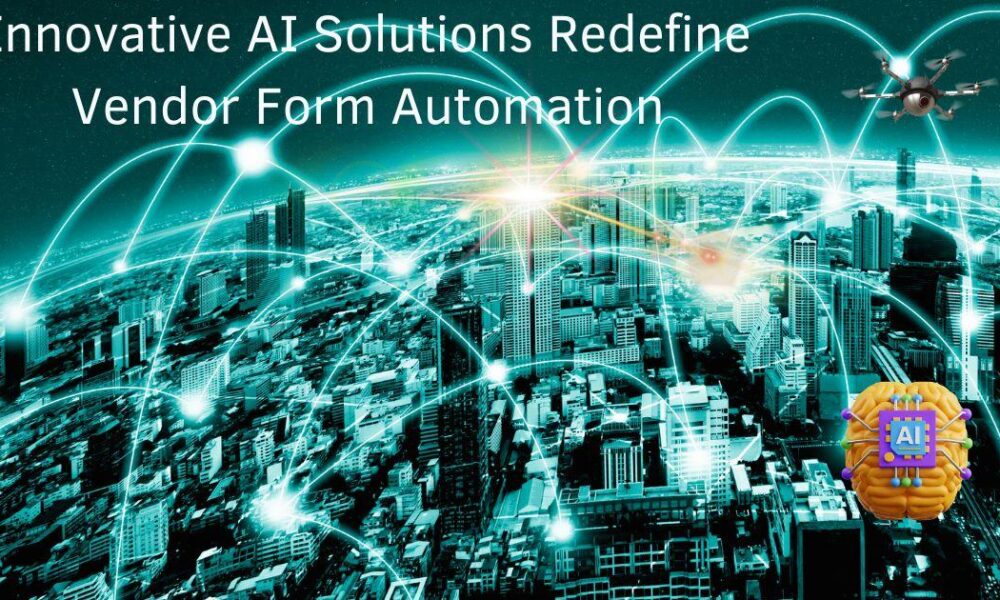In today’s digital transformation era, organizations leverage intelligent systems to streamline processes and boost operational efficiency. Innovative breakthroughs in vendor form automation, powered by artificial intelligence and modern web technologies, are revolutionizing enterprise workflows. In his article, distinguished researcher Rama Krishna Komma explores how AI-driven automation sets new standards in digital process integration. His pioneering work has inspired transformative approaches that enable businesses to overcome traditional challenges and embrace dynamic, technology-enhanced solutions, fostering growth, agility, and a competitive edge in a rapidly evolving digital landscape.
Streamlining Document Processing
The evolving automation paradigm revolutionizes vendor documentation management by integrating advanced machine learning techniques with intelligent document processing systems. These systems automatically generate, validate, and optimize forms, eliminating manual verification and reducing errors associated with traditional data entry. As a result, processing times are significantly shortened, and data extraction achieves unprecedented levels of accuracy. Furthermore, these innovations drastically lower operational costs while fostering efficient, seamless interactions with vendors. By reducing human intervention, organizations not only mitigate the risks of manual mistakes but also benefit from streamlined workflows that promote reliability, scalability, and enhanced vendor relationships. This transformative approach paves the way for more agile operations.
Architectural Ingenuity
The transformation in form automation is deeply rooted in modern technical frameworks. By harnessing the power of contemporary web technologies—coupled with state-of-the-art component optimization and code-splitting strategies—the system achieves significant performance enhancements. Innovative state management techniques ensure that dynamic form components are rendered efficiently, reducing unnecessary re-renders and memory usage. This thoughtful architecture underpins a robust platform that seamlessly supports large-scale enterprise operations, demonstrating that the convergence of innovative software design and intelligent automation can lead to remarkable operational gains.
Adaptive Intelligence and Learning
A defining feature of the new vendor automation solution is its adaptive intelligence. Utilizing generative AI frameworks, the system processes unstructured and semi-structured documents with exceptional precision. The integration of reinforcement learning mechanisms further refines the process, as the system continuously adapts based on user interactions and real-time feedback. Such adaptive learning not only improves form field prediction accuracy but also dynamically adjusts validation rules, ensuring that the system remains responsive to evolving document formats and compliance standards. This capability underscores a shift toward truly intelligent systems that learn and evolve over time, reducing manual intervention while boosting overall performance.
Robust Scalability and Security
Equally impressive is the solution’s ability to scale and maintain robust security. The architecture employs advanced distributed computing principles and load balancing strategies to support high volumes of concurrent form sessions without sacrificing performance. Sophisticated data flow management and caching mechanisms ensure rapid response times and efficient resource utilization. In parallel, a comprehensive security framework—built on multi-layered encryption protocols and real-time compliance monitoring—safeguards sensitive vendor information. This dual emphasis on scalability and security provides consistent service availability and reinforces trust, allowing enterprises to confidently embrace digital transformation without compromising on data protection.
Vision for the Future
Looking ahead, the roadmap for vendor form automation is one of continuous innovation and incremental optimization. Emerging trends in predictive analytics and advanced machine learning are set to further enhance system capabilities, promising even greater efficiency gains in the future. By integrating advanced data analytics and adaptive algorithms, future iterations of these systems are expected to achieve near-real-time error detection and self-optimizing workflows. This forward-thinking approach illustrates the immense potential of AI-driven automation, heralding an era where intelligent systems seamlessly integrate with business processes to create unprecedented levels of operational excellence.
In conclusion, Rama Krishna Komma, the visionary behind these advancements, encapsulates the transformative impact of integrating AI with modern automation frameworks. The innovations discussed not only streamline vendor form processing but also establish a resilient and secure foundation for future digital transformation efforts. As enterprises continue to seek improved efficiency and reduced operational overhead, the evolution of intelligent form automation stands as a testament to the power of thoughtful design and adaptive technology. This breakthrough represents a balanced and pragmatic step forward, setting new benchmarks in the realm of enterprise process automation while ensuring that the journey toward a fully digitized future remains both innovative and secure.












